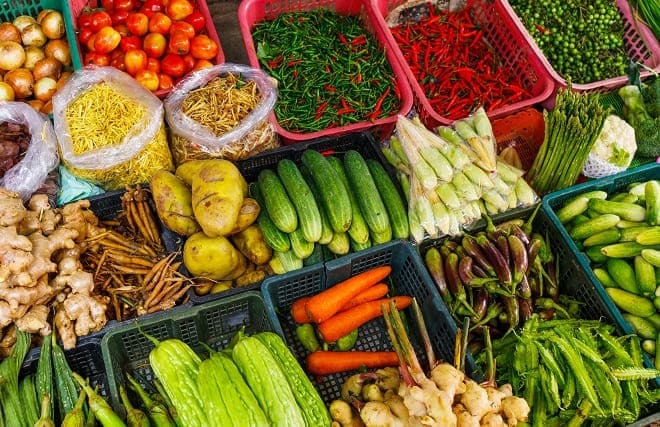
 Data Structure
Data Structure Networking
Networking RDBMS
RDBMS Operating System
Operating System Java
Java MS Excel
MS Excel iOS
iOS HTML
HTML CSS
CSS Android
Android Python
Python C Programming
C Programming C++
C++ C#
C# MongoDB
MongoDB MySQL
MySQL Javascript
Javascript PHP
PHPPhysics
Chemistry
Biology
Mathematics
English
Economics
Psychology
Social Studies
Fashion Studies
Legal Studies
- Selected Reading
- UPSC IAS Exams Notes
- Developer's Best Practices
- Questions and Answers
- Effective Resume Writing
- HR Interview Questions
- Computer Glossary
- Who is Who
What is the full form of FCI?
Introduction
Food Corporation of India (FCI) was founded in 1965 to guarantee an adequate food supply for the nation's expanding population. The FCI is in charge of running a nationwide system of stores and depots where food grains are kept. Through its extensive transportation network, the FCI also plays a significant part in distributing these grains to different regions of the nation.

In addition to its primary duties, the FCI also offers a variety of additional services, such as the implementation of welfare programs based on food, the administration of food- related crises, and the advancement of food grain exports.
History of Food Corporation of India
To achieve the National Food Policy, which attempts to provide adequate public stockholding of food grains to provide food security for the people of India, the Food Corporation of India (FCI) was founded under the Food Corporation Act of 1964. Food grains are purchased by the FCI from farmers at the lowest possible support price set by the Indian government, and they are then stored in their warehouses. The FCI is in charge of distributing grains for consumption to the state and union territory governments and also contributes to the upkeep of food grain buffer reserves to guarantee food security in the case of any production limitations. As a central public sector undertaking, the FCI is owned and managed by the Indian government.
Roles and Responsibilities of FCI
Food grain procurement − The FCI is in charge of buying food grains from producers at the minimum support price that the government has set. When necessary, the FCI also purchases food grains on the open market.
Grain storage − The FCI is in charge of running a nationwide network of depots and godowns to hold the grains obtained from farmers. The total storage capacity of these silos and the godowns are more than seventy million tons.
Food grain distribution − The FCI is in charge of providing food grain to India's states and Union Territories. The Public Distribution System, which gives subsidized food grains to the poor, is one of the welfare programs that receive food grains from the FCI.
Upkeep of buffer stocks − The FCI is in charge of keeping food grain buffer stocks to guarantee food security in the case of any production shortfalls or other calamities. The FCI is also involved in controlling both the supply and demand of food grains.
Additional duties − the FCI is also in charge of quality control, exporting and importing of food grains, as well as research and development related to the management and production of food grains.
Structure and functioning of Food Corporation of India
The Food Corporation of India (FCI) is a statutory organization that reports to the Indian government's Ministry of Consumer Affairs, Food, and Public Distribution. It was founded in 1965 with the main goal of putting the National Food Security Act into effect. FCI is in charge of obtaining, keeping, and distributing food grains throughout the nation. It runs through an extensive system of regional offices, regional offices, and depots.

The Chairman of the FCI is chosen by the government of India. A hierarchy governs the organization, with the Chairman at the top and the CEO, General Managers, and other upper management underneath him or her. The Managing Director, who is in charge of overall management and administration, assists the Chairman.
Five regional offices, each led by a General Manager, make up the company. The buying, preservation, and transportation of food grains in each region are handled by the regional offices. Field offices and warehouses, which are further separated into regional offices, are in charge of managing FCI's daily activities at both district and local scales.
Conclusion
The public distribution network for food in India is run by the Food Corporation of India, a company that is controlled by the government. Food grains must be purchased, stored, and transported before being distributed to the states for final consumer distribution through the Public Distribution System. The FCI was founded in 1965 with the primary goals of assuring enough food grain availability across the nation and supplying nutritious food to the most vulnerable populations. It is a fundamental component of the National Food Security Act's (NFSA) implementation and plays a significant part in India's system of food security. The FCI distributes food grains by rail, road, and canals in addition to operating a nationwide network of warehouses and depots for the preservation of food grains.
FAQs
Q1. How can one acquire a job at FCI?
Ans: Recognize that the online test and interview make up the majority of the examination process. For further information, one can also visit the official website.
Q2. Who is responsible for paying FCI's losses?
Ans: Any losses suffered by FCI must be paid for by the Union government. Since its inception, FCI has had to deal with a variety of food grain shortages and surpluses. It was crucial in transforming India from a nutrition-deficit country to an independent one.
Q3. Are farmers benefited by the FCI?
Ans: Yes, they are mentioning their efforts to keep the number of farmers in good condition. They make recommendations and present the information in various ways. One will be capable to obtain goods in good ways if one is truly interested in the field of preserving things.

